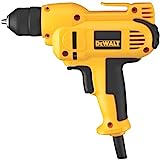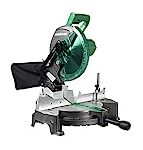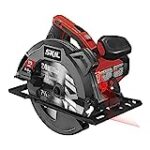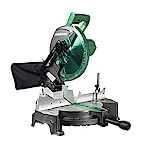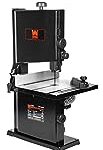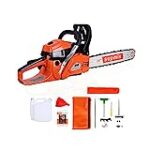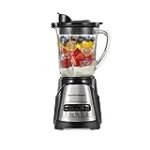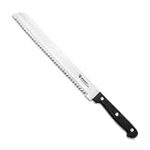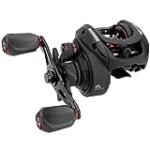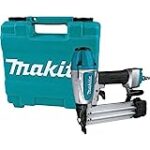🌅 Introduction
Looking for the best value in corded drills that will power through any project with ease? Look no further! Welcome to our corded drills best value guide. Whether you’re a DIY enthusiast or a professional contractor, we understand the importance of finding a drill that combines performance, durability, and affordability. Our expert team has researched and tested numerous corded drills to bring you the top contenders in terms of quality and value. From compact models perfect for tight spaces to heavy-duty options for tough jobs, we have you covered. Discover the ideal corded drill that will make your tasks a breeze without breaking the bank.
🏆 Our Top 5
- POWERFUL – 5.5 Amp motor delivers plenty of power for drilling/driving into a range of materials.
- VARIABLE SPEED – Supplies the power you need for enhanced control of all your projects.
- COMPACT – Perfect for taking with you on the job and working in small spaces.
- ON-BOARD BIT STORAGE – Keeps an extra bit contained and within easy reach.
- CORDED – Corded drill offers unlimited runtime for even the biggest jobs.
- 8-amp motor of the electric drill delivers high performance in heavy-duty applications
- 3/8-inch all-metal, ratcheting, keyless chuck is designed for greater bit retention of the corded drill
- DEWALT corded drill has 0-2,500 rpm with VSR trigger for versatility in drilling and fastening applications
- Mid-handle grip design with soft grip provides increased balance and comfort
- All ball bearing construction provides greater durability and longer tool life
- Note: Some items may have a missing chuck when you receive them. This is because the chuck is inside the tool. Just use the hex key on the power cord to align it with the hole in the chuck and then twist it out
- Professional and convenient: This drill hammer is equipped with 4.5 amp motor that makes it ideal for the most demanding projects; 105pcs accessories cover all your needs and equipped with durable carrying case for easy storage
- 1/2 keyed metal chuck: This corded drill features sturdy and durable metal chuck, its maximum chuck diameter of this impact drill is 1/2''. Note: Some items may have a missing chuck when you receive them. This is because the chuck is inside the tool. Just use the hex key on the power cord to align it with the hole in the chuck and then twist it out
- Hammer and impact functions: Equipped with a dual-mode selector on the top, you can easily convert between hammer and drill function by one button depending on your tasks; Hammer and impact functions: Equipped with a dual-mode selector on the top, you can easily convert between hammer and drill function by one button depending on your tasks
- Humanized design: Features a soft grip handle and a 360° auxiliary handle bring a maximum comfort with drill hammer in the palm of your hand; With lock button to enable you to lock the speed without a constant grip on the trigger to reduce fatigue
- Powerful 7. 5-Amp Motor – Corded hammer drill tackle the most demanding projects
- Keyless 1/2 Inch Metal Chuck – Powerful hammer drill Provides great convenience for frequent bit changes. Please note that this hammer drill can NOT be used in reinforced concrete walls.
- 2-in-1 Multi-Function - Easy switch , select the right function for each application in an instant
- Variable Speed Trigger - With preset selector and lock on, increased control and continuous operations, choose the speed you need as materials and conditions change
- Soft Grip Handle – Maximum comfort with relentless drill hammer in the palm of your hand
- High Torque 7.5 Amp Motor – Ideal for most demanding projects
- 1/2“(13mm) Heavy-Duty Keyed Chuck - To accept large diameter bits for heavy duty work
- Side Assist Handle - For improved safety and accuracy
- 2-Finger Variable Speed Trigger - Provides increased control
- Built-in Horizontal Bubble Level - Helps with precise horizontal and vertical drilling
🤔 How to choose?
1. Power and Performance
When choosing a corded drill, one of the most important factors to consider is its power and performance. The power of a drill is measured in watts or amps, and it determines how well the drill can handle tough materials and tasks. Look for a drill with a power rating that suits your needs. If you are a DIY enthusiast who plans on using the drill occasionally for light tasks, a lower power rating may suffice. However, if you are a professional who needs to tackle heavy-duty projects on a regular basis, you should opt for a drill with a higher power rating.
2. Chuck Size and Type
The chuck size and type are also crucial factors to consider when choosing a corded drill. The chuck is the part of the drill that holds the drill bit in place. The chuck size determines the maximum diameter of the drill bit that the drill can accommodate. It is recommended to choose a drill with a larger chuck size as it allows for more versatility in terms of the types of drill bits you can use. Additionally, consider the type of chuck – keyless or keyed. Keyless chucks are more convenient as they allow for quick and easy bit changes without the need for a key, while keyed chucks provide a more secure grip and may be preferable for heavy-duty applications.
3. Speed and Torque
The speed and torque of a corded drill can greatly impact its performance. Speed is measured in revolutions per minute (RPM), and it determines the drill’s drilling or driving capability. Higher RPMs are ideal for drilling holes, while lower RPM settings are better for driving screws. Torque, on the other hand, refers to the drill’s turning force. A drill with high torque is capable of handling tough materials and tasks. Consider the type of projects you will be working on and choose a drill with appropriate speed and torque settings to ensure optimal performance.
4. Ergonomics and Comfort
Since using a corded drill often requires prolonged periods of handling and maneuvering, it is essential to choose one that is comfortable to use. Look for a drill with an ergonomic design and a comfortable grip. It should be well-balanced and easy to control, reducing the strain on your hands and arms. Some models even feature additional features such as rubberized handles or adjustable auxiliary handles, providing further comfort and stability. Don’t underestimate the importance of ergonomics, as it can greatly impact the overall experience and effectiveness of using a corded drill.
5. Additional Features
Lastly, consider the additional features and functionalities that a corded drill may offer. Some models come with built-in LED lights to illuminate your work area, making it easier to see what you are doing in low-light conditions. Others may have a built-in level or depth stop for enhanced precision. Take into account your specific needs and preferences when it comes to these extra features, as they can add convenience and efficiency to your drilling experience.
When choosing a corded drill, consider its power and performance, chuck size and type, speed and torque, ergonomics and comfort, as well as additional features. By carefully evaluating these factors, you can ensure that you choose a corded drill that suits your needs and helps you tackle your projects with ease.
💡 What to Look for in a corded drills?
What to Look for in a Corded Drill
1. Power and Speed
When choosing a corded drill, one of the most important factors to consider is its power and speed. A drill with high power and speed will allow you to complete tasks more efficiently and effectively. It is measured in terms of the drill’s motor power (watts) and rotations per minute (RPM).
Example: A corded drill with a powerful motor of 800 watts and a high RPM of 2,500 will easily handle heavy-duty drilling tasks and provide faster results compared to a drill with lower power and speed.
2. Chuck Size and Type
Another crucial aspect is the size and type of chuck on the corded drill. The chuck holds the drill bits securely in place during operation. You should look for a drill with a versatile chuck size and type that can accommodate a variety of drill bits.
Example: A drill with a 1/2-inch chuck size is more versatile as it can handle both small and large drill bits, providing you with more flexibility in your projects. Additionally, a keyless chuck is more convenient as it allows for easy and quick bit changes without the need for additional tools.
3. Ergonomics and Comfort
Using a corded drill for extended periods can be tiring, so it is essential to prioritize ergonomics and comfort. Look for a drill with a comfortable handle design and a well-balanced weight distribution to reduce strain on your hands and arms.
Example: A corded drill with a rubberized grip and a lightweight design will provide a comfortable and secure hold, minimizing the risk of slippage and increasing control. Additionally, drills with adjustable handles or side handles allow for better control and stability during operation.
Conclusion
When purchasing a corded drill, it is crucial to consider factors such as power and speed, chuck size and type, and ergonomics and comfort. By prioritizing these aspects, you can choose a drill that suits your needs and ensures efficient and comfortable use. Remember to always consider the specific requirements of your projects and seek a balance between power and usability to make the most out of your corded drill.
🔍 How we picked?
1. Features to Consider When Choosing a Corded Drill
When it comes to buying a corded drill, there are several key features to consider. These features will determine the performance, durability, and versatility of the drill.
First and foremost, **power** is a crucial factor. Look for a drill with a high amperage or wattage rating, as this will indicate the drill’s ability to handle tough tasks and heavy-duty drilling. Additionally, consider the drill’s **speed** settings. An adjustable speed setting allows for greater control and precision when drilling different materials.
Another important feature to consider is the **Chuck Type**. Most corded drills come with either a keyed or keyless chuck. A keyed chuck requires the use of a special key to tighten and loosen the drill bit, while a keyless chuck can be operated by hand. Keyless chucks are more convenient and allow for quicker bit changes, making them a popular choice among users.
2. Ergonomics and Ease of Use
The comfort and ease of use of a corded drill should also be taken into consideration. **Weight** is an important factor, especially if you anticipate using the drill for extended periods. Look for a lightweight drill that won’t strain your arm or wrist during prolonged use.
In addition to weight, the design of the drill’s **handle** is crucial. A comfortable and ergonomic handle will ensure a secure grip and reduce fatigue. Some corded drills even feature a rubberized grip for added comfort and control.
**Balance** is another factor to consider. A well-balanced drill will be easier to maneuver and control, especially when working in tight spaces or overhead.
3. Durability and Reliability
When investing in a corded drill, you’ll want a tool that will stand the test of time. **Build quality** is therefore a key consideration. Look for a drill made from durable materials, such as metal or reinforced plastic, that can withstand regular use and abuse.
Additionally, consider the drill’s reputation for **reliability**. Reading reviews and researching the brand’s track record can provide valuable insights into the drill’s performance and longevity.
Some premium corded drills even come with a warranty, which not only offers peace of mind but also demonstrates the manufacturer’s confidence in their product.
In conclusion, selecting the right corded drill involves carefully considering the power, speed settings, chuck type, ergonomics, and durability of the tool. By focusing on these key features, you can ensure that the drill you choose will meet your needs and provide reliable performance for years to come.
💬 Frequently asked questions about corded drills
1. What is a corded drill and why should I consider buying one?
A corded drill is a versatile power tool that is perfect for both professional craftsmen and DIY enthusiasts. Unlike cordless drills that rely on batteries, corded drills are powered by electricity and offer consistent and reliable performance throughout your projects. With a continuous power supply, you don’t have to worry about the battery running out or losing power in the middle of your task. Whether you’re drilling holes or driving screws, a corded drill provides the necessary torque and speed to get the job done efficiently.
2. What features should I look for in a corded drill?
When choosing a corded drill, consider the following key features:
– **Power**: Look for a drill with a high amperage rating for greater power and performance. This will allow you to tackle a wider range of materials.
– **Chuck Size**: The chuck size determines the maximum diameter of the drill bit that can be used. Opt for a larger chuck size (e.g., 1/2 inch) for increased versatility.
– **Variable Speed**: Having multiple speed settings allows you to adjust the drill’s RPM (rotations per minute) to suit the specific task at hand.
– **Ergonomics**: Choose a drill with a comfortable grip and balanced weight distribution to reduce fatigue during extended use.
– **Depth Rod and Side Handle**: These features offer added control and precision, especially when drilling deeper holes or working with tough materials.
3. Can I use a corded drill for different applications?
Absolutely! A corded drill is a versatile tool that can be used in various applications such as drilling into wood, metal, plastic, and even concrete. With the right drill bits and accessories, you can also use it for tasks like driving screws or mixing paint.
4. Does the size of the motor affect the performance of a corded drill?
Yes, the size of the motor directly affects the power and performance of a corded drill. A drill with a higher amperage rating typically has a larger motor, which means it can deliver more torque and handle tougher materials. For heavy-duty applications, opt for a drill with a motor size of at least 7 amps.
5. Are corded drills more powerful than cordless drills?
Yes, corded drills generally offer more power and torque compared to cordless drills. While cordless drills have made significant advancements in recent years, corded drills still reign supreme when it comes to raw power. If you need a drill for heavy-duty tasks or work in a workshop where a power outlet is easily accessible, a corded drill is an excellent choice.
Last update on 2025-07-22 / Affiliate links / Images from Amazon Product Advertising API
